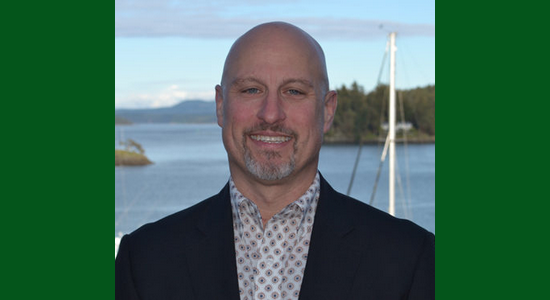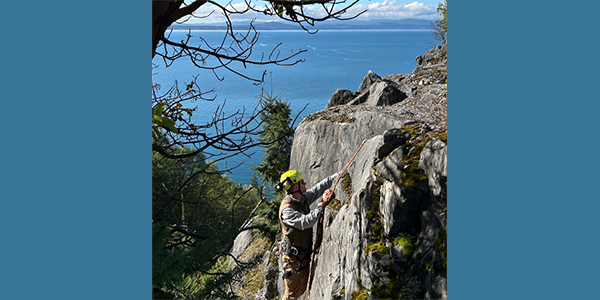— from Crosscut.com —
Washington’s waters are under threat from a villain you can’t see. This computer model is giving oyster farmers a lifeline as they seek to adapt to one of the biggest marine crises of our era.
Washington is home to thousands of marine species. Salmon, crabs and bivalve shellfish like oysters and clams fuel both the aquatic food chain and human fisheries — and they thrive under stable levels of acidity, salinity and other marine growing conditions.
But over the past few decades, climate change has acidified the world’s oceans at an unprecedented rate, threatening the biodiversity that defines our region and supports these fisheries. As the concentration of carbon dioxide in our atmosphere increases, the ocean dissolves more of it at the surface — producing conditions in Puget Sound and beyond that exacerbate shell deformation, promote toxic algal blooms and create other hurdles to healthy waters. According to the Washington State Blue Ribbon Panel on Ocean Acidification, 30 percent of Washington’s marine species are in danger from it.
Ultimately, stopping ocean acidification requires unprecedented international mobilization to reduce greenhouse gases. But if scientists and others could predict the complex undersea interactions that enable its worst effects, they could pull the trigger on short-term, local solutions that might help people and wildlife work around them. Researchers at the University of Washington have invented a computer model to do just that. Each day, LiveOcean compiles a vast array of ecosystemic data — currents, salinity, temperature, chemical concentrations, organic particles and more — to create a three-dimensional, 72-hour forecast for the undersea weather of the Pacific Northwest.
This is a particularly welcome tool for the state’s $270 million shellfish industry, which produces more farmed bivalves than the next two most productive states combined, according to the U.S. Department of Agriculture.
READ FULL STORY: https://crosscut.com/2019/02/could-tool-save-washingtons-shellfish?utm_source=Crosscut+Weekly+-+022319&utm_medium=email
**If you are reading theOrcasonian for free, thank your fellow islanders. If you would like to support theOrcasonian CLICK HERE to set your modestly-priced, voluntary subscription. Otherwise, no worries; we’re happy to share with you.**








In addition to acidification, climate change is warming the local waters and streams too, causing our local salmon to move north to cooler waters, or prematurely die off in the streams at beginning or end of migration cycle. Many of our local salmon come from the Fraser River.
“Scott Hinch, an expert witness on aquatic ecology, told the Commission of Inquiry Into the Decline of Sockeye Salmon in the Fraser River that sometimes 50 per cent of the salmon that return to the river die before they reach the spawning beds.
Dr. Hinch said because the Fraser has increased in temperature by about 2 degrees C, salmon are changing the timing of their spawning migrations, to enter rivers weeks earlier or later, in an effort to avoid warm water. And once in the river they are seeking out cold-water refuges, sometimes going up tributaries to sink to the bottoms of lakes or schooling where cold streams enter the Fraser.
As water temperatures continue to climb (predictions suggest an increase of between 2 and 4 degrees over the next 60 to 80 years), more and more Fraser River salmon are likely to die before they have a chance to spawn, said Dr. Hinch, a fisheries researcher and professor at the University of British Columbia.”
https://www.theglobeandmail.com/news/british-columbia/rising-temperature-in-fraser-river-affecting-salmon-population/article569896/
More on the impact of climate change on our oceans. In addition to ocean acidification and warming waters, this one is on declining oxygen, further stressing the ocean food chain and web of interdependent life.
https://www.scientificamerican.com/article/the-ocean-is-running-out-of-breath-scientists-warn/
Support our Governor’s Clean Energy legislation to help out the shellfish, salmon, orcas, and all marine and freshwater life. You can comment on the House Bill here:
https://app.leg.wa.gov/billsummary?BillNumber=1211&Initiative=false&Year=2019&utm_medium=email&utm_source=govdelivery